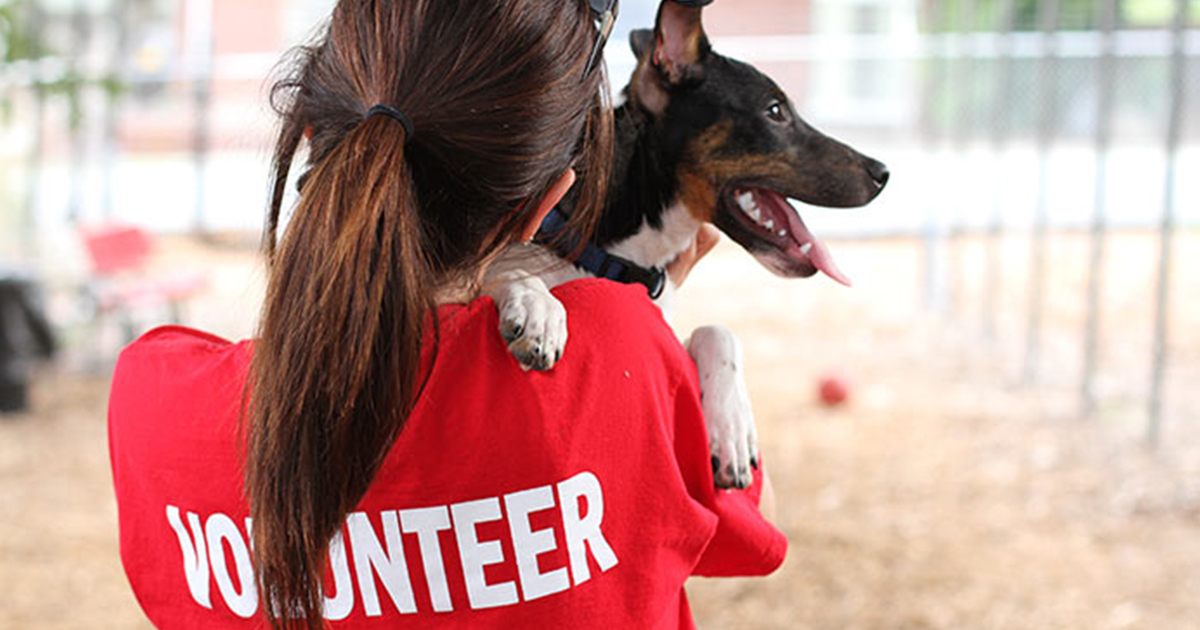As a pet parent, you want to enjoy every moment with your dog. Thinking about when they become sick or older is not pleasant; however, we have to consider these things and be ready to care for our fur babies when they become sick and older. Many pet parents have wondered if dogs can develop dementia, similar to us, as they age. The answer is yes, dogs can develop dog dementia later in life. In fact, there’s a medical term for this condition and it’s called Canine Cognitive Dysfunction Syndrome (CCDS). The condition is similar to Alzheimer’s in us.
Connect with a verified veterinarian in minutes. Licensed vets are available 24/7 to answer your questions. No need to worry about your furry family member.
What is Dog Dementia?
This is a medical condition related to age-related neurobehavioral syndrome, which leads to lower cognitive function over time. In other words, this is a degenerative process where a dog will show subtle changes over time. For instance, he may begin barking in the middle of the night. A dog can lose their sense of spatial perception and more. The cause of CCD is unknown. Researchers have found it may be caused by the accumulation of sticky proteins and plaques around neurons, and the degeneration of neurons, leading to neurofibrillary tangles, which eventually spread throughout the brain. These lead on to the interruption of nerve impulses to the brain, causing dementia symptoms.
It’s a condition many people don’t realize their canine companions can develop. Doggie dementia is much like what you may observe in an older person. However, if you notice symptoms early, there are treatments that can help your dog to feel better and retain his cognition longer.
Symptoms of Canine Dysfunction Syndrome – Dog Dementia
Typical onset of symptoms begins in many dogs when they reach the age of 11 years and older. When or if a dog develops dog dementia will vary, depending on your dog’s breed and other health conditions. There are many dogs that never develop this cognitive condition. Some people ask about dog with dementia lifespan; the good news is that dementia will not shorten your dog’s life. In fact, most dogs with dementia pass away due to other age-related health issues, and generally not from dementia. So, chances are your fur baby will live a normal lifespan for his breed and could even life longer with good medical care.
Here are the most common signs and symptoms of dogs with dementia:
1. Disorientation: you may notice your fur baby becomes disoriented, even at home and in his own yard. Dogs may even forget which door to use to go in/out. You may also find him wandering behind furniture as if he’s lost, or at bedtime, he may be in a completely different part of the house than normal. These are all signs that the part of his brain that helps to orient has become affected. Other signs of disorientation may include aimless wandering, being stuck in a corner, signs that he’s feeling lost, etc. These are all indications your pup is having a hard time remembering and recognizing the space he’s in, such as where to go and when. This is very similar to human forms of dementia.
2. Changes in interactions with family, friends and other pets: canine cognitive dysfunction can also affect the way your dog interacts with you, your family, friends and other pets in the home. Signs can include your normally friendly and sociable fur baby becoming irritable and cranky. He may even growl and/or bite loved ones. Other dogs tend to withdraw to quiet areas. He may even no longer respond to the doorbell, and no longer want to greet guests. The issue could be caused by pain caused by arthritis, etc. The changes can also be caused by fear, anxiety.
3. Potty accidents in the house: in dogs that have been house-trained, an indication of doggie dementia may be bathroom accidents in the house. This may be due to a decrease in mobility, confusion about the daily routine, or even forgetting where to go outside and which door to use. This can also be a sign of other health issues, including gastrointestinal problems or urinary tract infections, both of which are common in older dogs.
4. Sleeping more: you may notice your fur baby is sleeping more often. This is common in older dogs. However, with doggie dementia, you may notice that he’s not only sleeping longer, but at odd times during the day. Your pup’s sleep/wake cycle has become disrupted. Your canine companion may begin not sleeping at night, and instead he may wander aimlessly all night long, possibly even barking. His normal schedule has become reversed due to the dementia. This is often an early sign of dementia in our doggie fur babies.
5. Loss of direction when out for walks: you may notice that your dog is gradually losing his ability to follow when you’re on a walk, even when you take the route you two have used every day. As this happens, your pup begins to experience fear and anxiety, because he doesn’t know where he is.
6. Lower activity levels: your pup may also lose his interest in playing, instead preferring to be off alone or sleeping. It can be caused by dementia, but it could also be a sign your fur baby has pain from arthritis or other issues common to dogs as they age.
7. Pacing & whining: it can be distressful to see your fur baby whining and pacing for no apparent reason. He may even do this at weird hours of the day, such as at night. These are signs he could be in pain and/or that he’s not sure where he is, etc.
8. Staring off into space: is another common sign of dementia in dogs. You may notice your pup seems to be staring off at nothing obvious.

Review symptoms, medications & behavior to keep your pets healthy with a Vet Online in just minutes.
Ask a Vet Live NowDog Dementia Stages
Canine cognitive dysfunction usually comes on gradually and the signs/symptoms may be subtle in the beginning. There are generally three stages in doggie dementia:
Stage 1: Mild: you may notice some changes in your dog’s sleeping patterns and/or slight changes in his interaction with you and others.
Stage 2: Moderate: these changes are generally a little more noticeable, though they may still be subtle. You may notice your dog has increased trouble sleeping at night, he may begin to have potty accidents in the house, etc.
Stage 3: Severe: at this point, the signs and symptoms of dementia will be quite noticeable. You may notice a lack of responsiveness in your pup, he may begin to wander aimlessly and may be barking through the night, etc.
It’s important to remember this is a general outline of stages for canine dementia. Each dog is an individual and will go through these stages at different times or in a different order, etc. As a pet parent, the important thing to remember is to observe your fur baby every day.
Watch for signs and symptoms that he may be in the beginning stages of canine dementia, then seek help from your vet on the proper course of treatment.
Can Dog Dementia Cause Seizures?
It doesn’t appear that canine dementia can cause seizures; however, seizures are sometimes mistaken for dog dementia. In fact, if all of sudden your canine companion seems to be showing signs of dementia, then it probably isn’t dementia. It could be he’s having seizures, a brain tumor, kidney problems, he could have been poisoned, and and the list goes on.If you notice your dog is having seizures, be sure to take him to the vet as soon as possible for an evaluation. Just as with other medical conditions, early diagnosis and treatment could save your dog’s life.
Living with a Dog with Dementia
It is possible to live with your dog as he develops dementia and, of course, it’s important to follow your vet’s guidance on the proper treatment, etc. In general, there are some things you can do to help your fur baby through this stage of life. Let’s take a look.
- Stick to a routine: disorientation is a major issue for dogs with dementia. To help him, stick to a schedule every day, which can work to help lessen symptoms such as anxiety and fear. It’s a good idea to get him up at the same time every day, and then stick to a regular feeding schedule. Then you’ll need to also have a regular bedtime, which should be the same every day, as much as possible.
- Manage anxiety and fear: these signs of stress are disturbing to watch in your fur baby. You may find him stuck behind some furniture or in a corner, not knowing how to get out, etc. You may need to talk with your vet about possible treatments for anxiety and fear. There are medications available that can help your pup to sleep and keep him calm, too.
- Schedule regular walks and play sessions: keeping your fur baby active can also help wear off some of the fear and anxiety, as well as help him sleep better. Make a walk and playtime regular parts of the day, at the same time every day. Be sure to keep in mind your dog’s condition. If he suffers pain, etc. he may not be able to walk for long or play very hard. Keep activity levels comfortable for him.
- Keep his environment consistent: like you keep his schedule consistent, it’s important to avoid making huge changes in your fur baby’s environment, including your home and the yard. Changes can increase his fear, anxiety and confusion. So, keep furniture in the same place, so he can find his way. Also keep his bed, toys and food/water bowls in the same place for him. It’s also a good idea to avoid rugs and other clutter if your dog has mobility issues.
- Puzzle toys: can be a fun way to keep your dog’s mind active, even if he’s already showing some signs of dementia. The toys work by encouraging interaction, presenting an easy physical challenge, etc. However, be sure to watch your dog engage with the puzzle. If he shows signs of fear, anxiety, stress etc. then you may need to find another activity for him. You don’t want to make things worse by increasing his fear, anxious feelings or confusion.
- Ask your vet about treatments for canine dementia: there are medications that can help your dog with his dementia. Medicines include anipryl (also known as Selegiline) that is effective in treating doggie dementia by improving their cognitive functions. There are also medications to treat sleeping problems and anxiety. Don’t hesitate to ask your vet if these may be appropriate treatments for your fur baby.
Dog Dementia Natural Treatment
You’ll also find a wide variety of natural treatments for canine dementia. Natural treatment for dementia in dogs can include:
Omega-3s: acts as an anti-inflammatory and can improve cognitive and joint function.
SAMe: this is a natural treatment available from pet shops, local drugstores, etc. It’s often advised that people take this for help with depression. This supplement also works for dogs with dementia, with many vets suggesting this to pet parents of senior dogs showing signs of dementia.
Be sure to ask your vet for other types of natural treatments that may help soothe your dog’s dementia symptoms. And ask for the right dosage, too, of any supplement you may want to give your dog. As you can see, there’s a lot to consider when it comes to dealing with your fur baby’s dementia. The good news is that with early treatment, your pup may stave off the more severe forms of canine dementia, or you can help him stay in the early to mild stages longer with treatment.
It’s all about keeping your dog happy and comfortable as he ages. The goal is to keep his anxiety, fears, etc. from becoming worse. Keeping on a regular schedule, keeping his environment consistent, etc. can go a long way to help him with this condition. And remember, early detection is best—the sooner dementia is caught, the earlier you can begin treatment which could slow down the development of your pup’s canine dementia.
Connect with a verified veterinarian in minutes. Licensed vets are available 24/7 to answer your questions. No need to worry about your furry family member.

Tom
Tom has always loved to write since he was little - he wanted to be either a writer or a veterinary doctor, but he ended up being a professional writer while most of his works are based on animals. He was born in San Francisco but later moved to Texas to continue his job as a writer. He graduated from the University of San Francisco where he studied biotechnology. He is happily married and a soon to be father!
Review symptoms, medications & behavior to keep your pets healthy with a Vet Online in just minutes.
Ask a Vet Live Now



